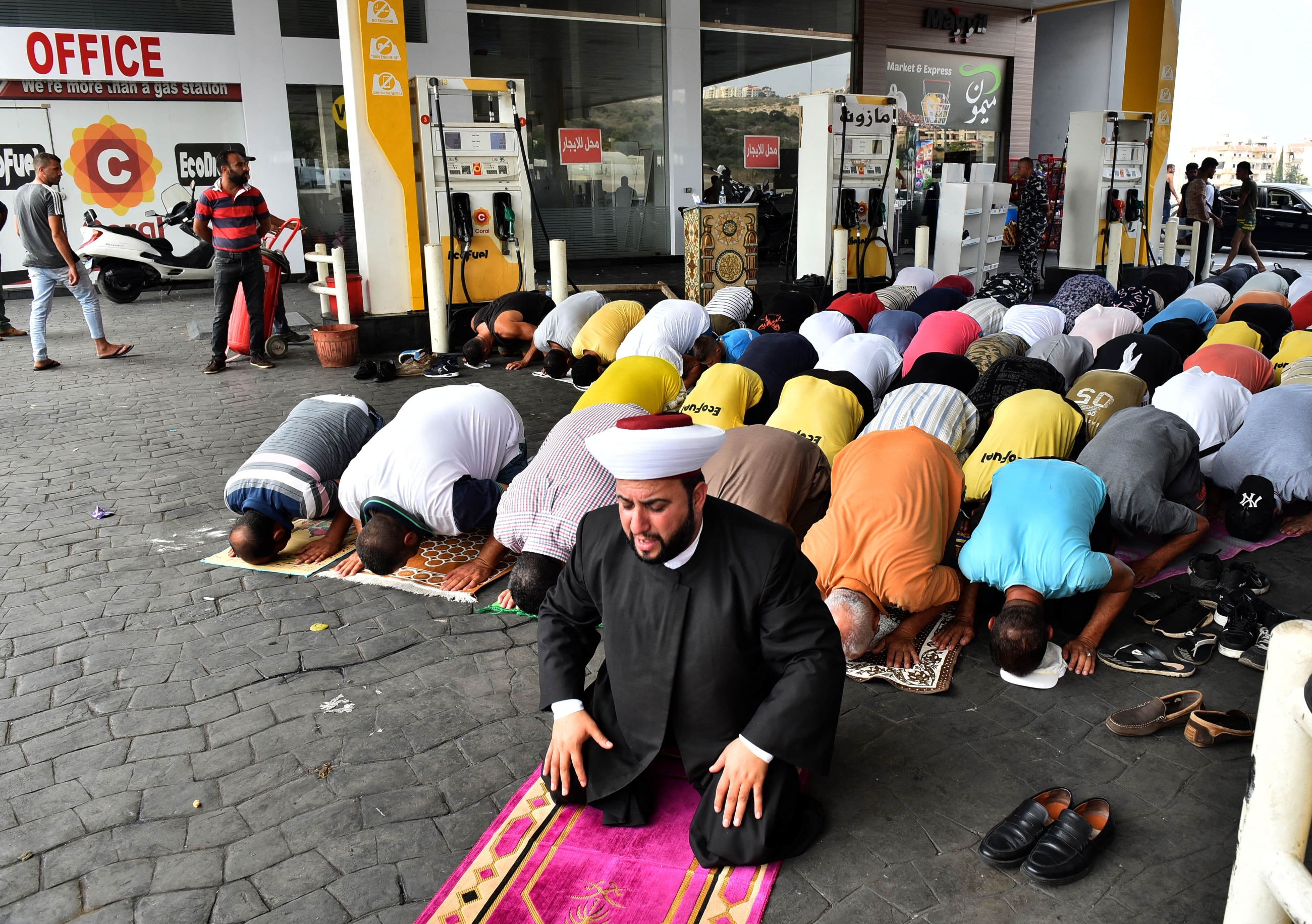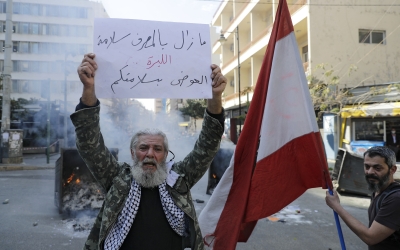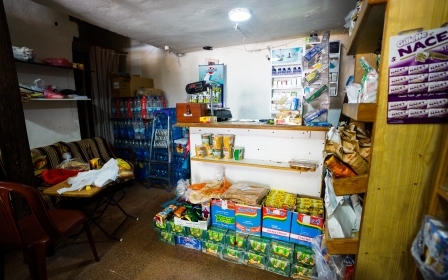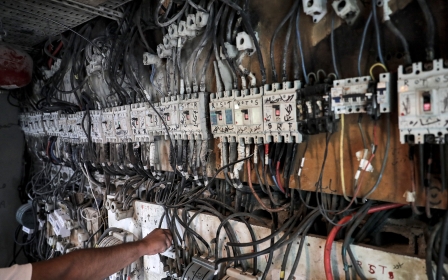Lebanon removes all subsidies on fuel causing further spike in prices

Lebanon raised fuel prices again on Wednesday, ending subsidies and making the cost of one car fuel tank more than the monthly minimum wage.
The spike in prices comes amid a historical economic crisis that has left the country queuing for fuel for months, and plunged it briefly into darkness earlier this month when Lebanon was unable to fuel its national power grid.
Over the past few months, subsidies have been gradually phased out to make up for diminishing foreign currency reserves at Lebanon’s central bank, which stopped subsidising fuel imports.
The energy ministry revised its list of prices, which now sets the price for 20 litres of 95-octane petroleum at 302,700 Lebanese pounds (lira) - or around $15 at the black market rate. This is a fourfold increase since the end of June when the price was set at 61,100 pounds.
The new price "marks a complete lifting of petroleum subsidies", Fadi Abou Chakra of the country's fuel distributors' association told AFP.
New MEE newsletter: Jerusalem Dispatch
Sign up to get the latest insights and analysis on Israel-Palestine, alongside Turkey Unpacked and other MEE newsletters
"The fuel price hike will cause the cost of services to also increase, especially transportation," he added.
Following the drop in value of the Lebanese currency last week, the energy ministry also raised the price of diesel and cooking gas on Wednesday.
The Lebanese pound sold at the time for 20,500 against the dollar, reaching its lowest value in months.
An official who spoke to AFP on condition of anonymity said that the "latest petroleum prices were calculated on the basis of a currency exchange rate of 20,000 pounds to the dollar, as per a central bank request".
Nearly 80 percent of Lebanon’s population is estimated to live below the poverty line, which makes the price of filling a medium-sized tank more than the monthly minimum wage of 675,000 pounds.
France and the International Monetary Fund are among the creditors who have asked for an audit of Lebanon’s central bank, to make way for reforms that would unlock financial support for the poverty-stricken country.
Officials told AFP that an audit by a New York-based firm will resume on Thursday.
The World Bank has described Lebanon’s economic crisis as one of the world's worst in modern history.
Middle East Eye delivers independent and unrivalled coverage and analysis of the Middle East, North Africa and beyond. To learn more about republishing this content and the associated fees, please fill out this form. More about MEE can be found here.





